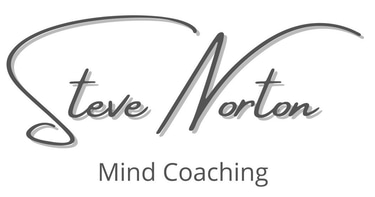Health Anxiety Is Ruining My Life
How health anxiety can affect your life and how you can retrain your mind so that it doesn't impact you.
5/28/20244 min read


How to Deal with Health Anxiety
Ever feel like you've become a human web browser, constantly searching for health information out of fear? I hear this a lot as an anxiety therapist. Just last night, after a video on health anxiety, someone messaged me on TikTok about their worries. They described feeling overwhelmed, and when I asked how they knew it was time for help, their answer hit me hard: all 83 open Chrome tabs were about serious health concerns.
It is normal to worry about your health. Still, when the persistent worry that every change in bowel movement or every ache is a sign of a serious condition turns into an obsession, you might be dealing with health anxiety.
Good news, health anxiety is treatable! In this post, you will understand it, and learn ways to cope with it, and treatment options that have helped others like you.
What Is Health Anxiety?
Health anxiety disorder is a type of anxiety disorder that causes persistent and obsessive worry about one’s health particularly to the point where this worry starts affecting the quality of life. Such a person will misinterpret natural body sensations like changes in breathing, heart rate, and saliva levels, as dangerous.
Other health anxiety symptoms include:
Obsessively consuming health material on the Internet or TV as a reaction to irrational health concerns.
Constantly asking other people for reassurance that you are not sick
Requesting second, third, or even fourth medical opinions on benign health issues
Excessive calls and visits to your health provider and requests for multiple tests
Constantly checking your body for signs of growth, lumps, or illness
Refusing medical examination for fear of discovering the worst
In some cases, people with illness anxiety disorder will be scared of seeing objects associated with serious health conditions like cancer or HIV
What Causes People to Develop Health Anxiety?
Here are some factors that I’ve seen may be involved
Bias: a poor understanding of body sensations, functions, and diseases can lead you to think that a serious disease is responsible for them. The natural functioning of the body can involve some discomfort. These are not necessarily signs of an underlying health crisis. Not knowing this can cause you to freak out at the slightest ache and, of course, seek out evidence to support the dread.
Past experiences: dealing with a serious health issue can leave a strong fear in some people. This fear can manifest later on as health anxiety in an attempt to reclaim control over one’s body.
Upbringing: if you grew up around adults who are excessively worried about their health, chances are you will end up developing the same habit. This can easily snowball into health anxiety.
Effects of Health Anxiety
a person struggling with health anxiety may frequently take leave from work for health emergencies which are, of course, not emergencies at all. This can have a severe impact on work performance.
Frequent visits to the hospital eventually rack up medical bills and pose serious financial issues.
People with illness anxiety are at a higher risk of developing other mental health conditions such as depression and other forms of anxiety disorder.
General poor quality of life as one struggles with daily activities and social isolation.
How to Cope with Health Anxiety
Health anxiety can have a serious impact on your quality of life. It ruins relationships and careers. In my 27 years as an anxiety specialist, I have worked with many patients who avoid social interactions and activities, so they won’t contract diseases or get into accidents. Here are some ways to cope.
1. Ground yourself
Take steps to challenge your health anxiety thoughts. One exercise to help put things in perspective is to draw a column and note down the health symptoms you tend to worry about on the one hand. On the other hand, write down a less dreadful explanation for it.
You know what? Let’s do it together!
Column 1: I have a tingling in my left hand. I think I’m about to have a stroke.
Column 2: there are lots of reasons for this. Maybe I slept on my arm.
You can also get anxiety help through positive affirmations by reminding yourself that you are healthy and that it’s okay not to obsess over things you can’t control.
2. Ease yourself into normalcy.
Reduce the amount of times you ask for reassurance from doctors and those around you. While it might provide quick relief, it is not a lasting solution. Also, start easing yourself into those activities you’ve been avoiding for fear of jeopardizing your health.
3. Keep your mind occupied
Once you begin spiralling into that dreadful place of worry, engage in some form of mindfulness like taking a walk, meditating, or taking deep breaths. This helps with the physical reactions associated with health anxiety such as increased heart rate.
Diagnosis and treatment for health anxiety
The first step to treating health anxiety is to seek medical help to make sure your concerns are false alarms and not physical medical issues. Once that is ruled out, you will be referred to a specialist for Mind Retraining.
Mind Retraining is a form of psychotherapy used for treating conditions like health anxiety. It focuses on the connection between thoughts, emotions, and behaviours. It helps individuals identify negative thought patterns that contribute to their anxiety and teaches them ways to reshape these thoughts into more realistic and helpful ones.
Anxiety specialists like myself use the thought retraining technique to help countless individuals like yourself get rid of health anxiety in under 3 weeks. We can start with a quick 30-minute call to get a full assessment and treatment plan for you.
Conclusion
Don't let health anxiety control your life! You're not alone – millions experience it. While worrying about health is normal, when it disrupts your daily activities, it's time to take charge.
This article has equipped you with tools to understand health anxiety, challenge negative thoughts, and regain control. Remember, seeking professional help from a therapist specializing in Mind retraining can be life-changing. Don't hesitate to reach out – a happier, healthier you awaits.


